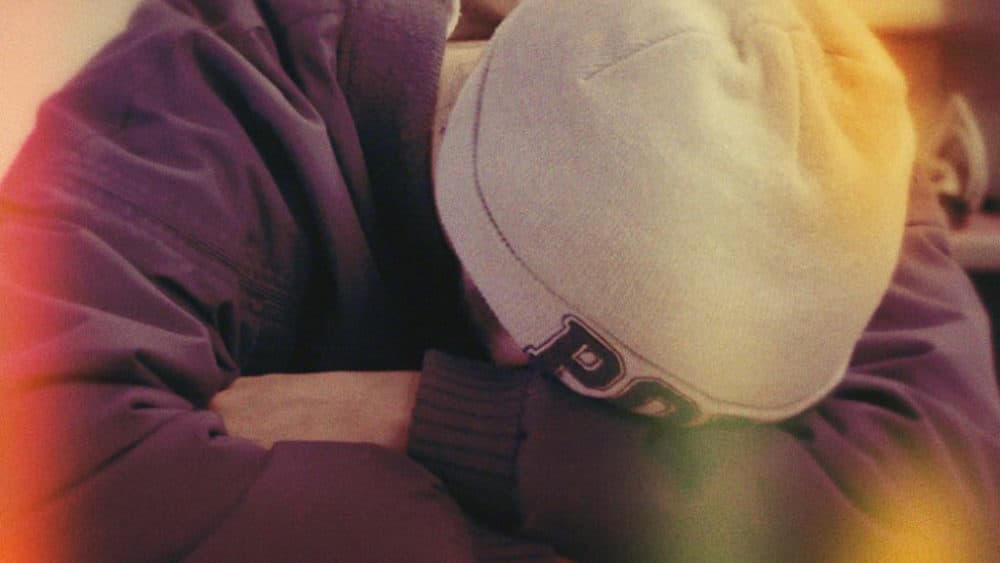Advertisement
'16 & Recovering' Provides A Model For Compassionate Education And Addiction Management

Like many New Englanders, Steve Liss has lost people he cares about to opioids. Liss lives in Beverly and is a documentarian and educator. A few years ago, one of his students succumbed to an overdose at 23.
“At the time, I was as overwhelmed as anybody would be with a sense of guilt, of powerlessness,” says Liss. “And a sense of anger and frustration with a system and educational system that really didn't know how to help.”
Then he heard about Northshore Recovery High School. “My interest was immediately piqued when I met Michelle Lipinski, and I saw the school, I knew there was a powerful story there to be told.”
Lipinski is the school’s founder and principal. As a career-long public educator, she felt a sense of despair over the number of students she was losing to the growing opioid crisis, and the ways that the system was failing them at every level.
One of the first things Liss noticed was how honest everyone was with each other, and how much the students seemed to trust Lipinski and their teachers.
“I've done stories on addiction before and it’s a manipulative disease. That doesn't make them bad kids or bad people. It's just the nature of the beast, they lie to get what they need,” says Liss. “But not here. People are brutally honest here. That really struck me.”
After a couple months of discussion, Lipinski and her students agreed to give Liss unfettered access into their often misunderstood lives. Liss filmed at Northshore Recovery High School five days a week for the entirety of the 2018-2019 academic year. His work has culminated in the new four-part MTV series, “16 & Recovering.”
The show, which airs Tuesday nights at 9 p.m. (the first episodes are already available to stream), follows Lipinski and her students as she helps them manage their addictions. MTV has also created an awareness campaign with resources for those who are affected by the opioid crisis and substance use disorders. Lipinski says they’re all excited for the opportunity to model a more compassionate, evidence-based approach to youth addiction management.
“They feel incredibly validated and really grateful that they were able to get their stories out there and that they helped,” says Lipinski. “Because when you get into a place where you know that you have this amount of support, you always want to give back.”
And support is definitely what shines through in the series. The students have each others’ backs and so do their teachers. Many of the faculty and staff have dealt with addiction and trauma themselves and are honest about their experiences as a way to relate and model what’s possible in recovery.
Advertisement
Liss says the students were on board and had a lot of control over their stories. They wanted to show people what life was really like for young people managing their addictions while trying to graduate and plan for the future.
“One student told me that ‘when people think about a teenage addict they see someone raggedy, someone who hasn't slept for days, sunken eyes, dirty, disoriented, like in the back of an alley, but we're just normal kids who happen to be addicted to things,’” Liss recalls. “So giving them a chance to dispel inaccurate, corrosive stereotypes, that was a main goal of mine and a main goal for the series.”
While the series follows a full year at the school, each episode is a deeper dive into two students’ stories, so we get an intimate look at eight students in particular. In the third episode, Shawn O’Neill, who was a senior at the time of filming, introduces himself as “impulsive, creative, insightful, caring, and compassionate.”
Throughout the episode, Shawn struggles with his own depression, recovery, and relapse, while showing love and support for his fellow students.
“He was all about love and light, and all he wanted to do was be sober,” says Lipinski. “When anyone was struggling, that child just took them under his wing and did everything he could to heal them and made them laugh, and he was goofy.”
Shawn did not live to graduation. He relapsed and overdosed after Thanksgiving break. Lipinski and Liss both call his death a massive systemic failure.
The day before his death, Lipinski, his mother, and his teachers were able to convince Shawn to enter treatment after he tested positive for fentanyl, a synthetic opioid that killed more than 1,800 Bay Staters in 2018 alone. The drug causes more than 90% of all opioid-related deaths in Massachusetts.
Lipinski secured him a bed in a rehabilitation center, but when he arrived he learned that because of his insurance, he needed to be seen in the emergency room first. He waited in the emergency room for hours detoxing unassisted; long enough to change his mind. When he returned to school he was argumentative and refused to get help. The next morning, he died.
“It wasn't the drugs that killed Shawn, it was the system. And it's got to change,” says Liss. “We've got to do something about a system that puts so much red tape in front of a young person who's ready to go to treatment. The very things that were supposed to help him were the barriers that were in his way, and it cost him his life.”
Lipinski says that Shawn really wanted to do the documentary because he believed his story could create positive change. “We didn't know it was going to end so tragically, but I do believe that his story will change the world.”
She says ultimately, that’s why she and the others agreed to the documentary. They believe that accessible treatment, resources, and compassionate care provide a path forward for those in recovery
“Our policies are keeping kids sick. So let's just throw that baby out,” says Lipinski. “Let's create something that's kinder and gentler for people who are most vulnerable.”
"16 & Recovering" airs Tuesdays at 9 p.m. on MTV.
This segment aired on September 9, 2020.

